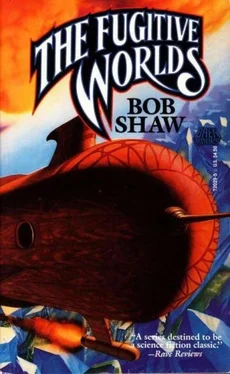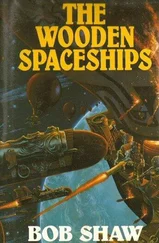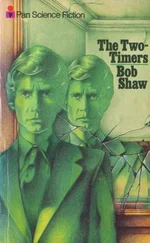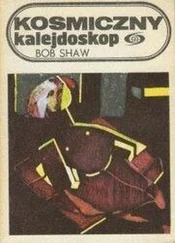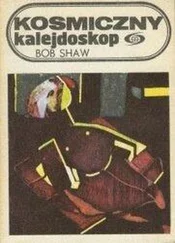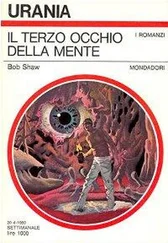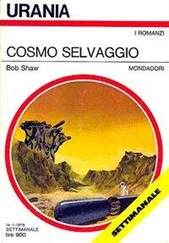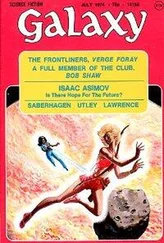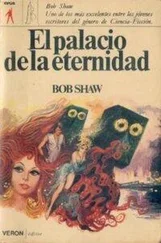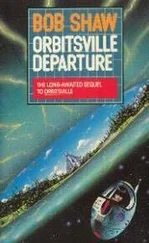Bob Shaw - The Fugitive Worlds
Здесь есть возможность читать онлайн «Bob Shaw - The Fugitive Worlds» весь текст электронной книги совершенно бесплатно (целиком полную версию без сокращений). В некоторых случаях можно слушать аудио, скачать через торрент в формате fb2 и присутствует краткое содержание. Год выпуска: 1990, ISBN: 1990, Издательство: Baen Books, Жанр: Фантастика и фэнтези, на английском языке. Описание произведения, (предисловие) а так же отзывы посетителей доступны на портале библиотеки ЛибКат.
- Название:The Fugitive Worlds
- Автор:
- Издательство:Baen Books
- Жанр:
- Год:1990
- ISBN:0-671-72029-5
- Рейтинг книги:3 / 5. Голосов: 1
-
Избранное:Добавить в избранное
- Отзывы:
-
Ваша оценка:
- 60
- 1
- 2
- 3
- 4
- 5
The Fugitive Worlds: краткое содержание, описание и аннотация
Предлагаем к чтению аннотацию, описание, краткое содержание или предисловие (зависит от того, что написал сам автор книги «The Fugitive Worlds»). Если вы не нашли необходимую информацию о книге — напишите в комментариях, мы постараемся отыскать её.
The Fugitive Worlds — читать онлайн бесплатно полную книгу (весь текст) целиком
Ниже представлен текст книги, разбитый по страницам. Система сохранения места последней прочитанной страницы, позволяет с удобством читать онлайн бесплатно книгу «The Fugitive Worlds», без необходимости каждый раз заново искать на чём Вы остановились. Поставьте закладку, и сможете в любой момент перейти на страницу, на которой закончили чтение.
Интервал:
Закладка:
“I don’t care about that,” Toller exclaimed. “I want to go!”
“To Land! But only a moment ago…”
Toller halted Cassyll by catching his arm and turning to face him. “No more play-acting, father, please! I want to take a ship to Land. You will see to it that my application is successful, won’t you?”
“I’m not at all sure that I can,” Cassyll said, suddenly uneasy at the prospect of his only son—who was still a boy in spite of all his pretensions to manhood—setting off across the perilous bridge of thin air which linked the two worlds.
Toller produced a broad smile. “Don’t be so modest, father of mine. You’re on so many committees, boards, tribunals, councils and panels that—in your own quiet way, of course—you practically run Kolcorron. Now, tell me that I’m going to Land.”
“You’re going to Land,” Cassyll said compliantly.
That night, while he was waiting for Bartan Drumme to arrive with a telescope, Cassyll thought he could identify the true cause of his misgivings about Toller’s proposed flight to the Old World. Toller and he had a harmonious and satisfying relationship, but there was no denying the fact that the boy had always been unduly influenced by the stories and legends surrounding his paternal grandfather. Apart from the striking physical resemblance, the two had many mental attributes in common—impatience, courage, idealism and quickness of temper among them—but Cassyll suspected that the similarities were not as great as the younger Toller pretended. His grandfather had been much harder, capable of total ruthlessness when he deemed it necessary, possessed of an obduracy which would lead him to choose certain death rather than betray a principle.
Cassyll was glad that Kolcorronian society was gentler and safer than it had been even a few decades ago, that the world in general offered fewer chances for young Toller to get himself into the kind of situation where—simply through trying to live up to self-imposed standards—he might forfeit his life. But now that he was committing himself to fly to the Old World those chances were bound to increase, and it seemed to Cassyll that the ghost of the long-dead Toller was stirring into life, stimulated by the scent of dangerous adventure, preparing to exert its influence on a vulnerable young man. And even though he was thinking about his own father, Cassyll Maraquine devoutly wished that that restless spirit would confine itself to the grave, and to the past…
The welcome sounds of Bartan Drumme being admitted by a servant at the front entrance roused Cassyll from his chair. He went down the broad staircase and greeted his friend, who was carrying a wooden-tubed telescope and tripod. The servant offered to take the telescope, but Cassyll dismissed him, and he and Bartan carried the heavy instrument up to a balcony which afforded a good view to the west. The light reflected from Land was strong enough for reading, but nevertheless the dome of the sky was thronged with countless bright stars and hundreds of spirals of varying sizes and shapes, ranging from circular whirlpools to the narrowest of ellipses. No less than six major comets were visible that night, splaying fingers of radiance across the heavens, and meteors darted almost continuously, briefly linking one celestial feature to another.
“You surprised me this foreday, you know,” Cassyll said. “Nobody I know can talk like you, regardless of the audience and circumstances, but you seemed flummoxed for some reason. What was the matter with you?”
“Guilt,” Bartan said simply, raising his head from the task of setting up the tripod.
“Guilt!”
“Yes. It’s this damned fourth planet, Cassyll. Every instinct I have tells me that it does not bode well for us. It shouldn’t be there. Its presence is an affront to our understanding of nature, a sign that something is going terribly amiss, and yet I am unable to convince anyone—not even you—that we have cause for alarm. I feel that I have betrayed my Queen and country through my sheer ineptness with words, and I don’t know what to do about it.”
Cassyll gave a reassuring chuckle. “Let me see for myself this harbinger which troubles you so much—anything which stills the famous Drumme tongue must be worthy of careful perusal.”
He was still in a mood of comparative levity when, having prepared and aligned the telescope for him, Bartan stepped aside and invited him to look into the eyepiece. The first thing to meet Cassyll’s gaze was a fuzzy disk of bluish brilliance which resembled a soap bubble filled with sparkling gas, but one touch on the focusing lever achieved a remarkable result.
There before him, suddenly, swimming in the indigo depths of the universe, was a world —complete with polar snow caps, oceans, land masses and the white curlicues of weather systems.
It had no right to exist, but it did exist, and in that moment of visual and intellectual confrontation Cassyll’s first thought—with no justification he could understand—was for the future safety of his son.
Chapter 3
The height gauge consisted of a vertical scale from the top of which a small weight was suspended by a delicate coiled spring. Its operating principle was so simple and effective—as a ship rose higher and gravity lessened the weight moved upwards on the scale—that only one modification had been introduced in fifty years. The spring, which would once have been a hair-like shaving of brakka wood, was now made of fine-drawn steel. Metallurgy had made great strides in Kolcorron in recent decades, and the guaranteed consistency of steel springs made gauges easy to calibrate.
Toller studied the instrument carefully, making sure it indicated zero gravity, then floated himself out of the cabin and over to the ship’s rail. The fleet had reached the weightless zone in the middle of a daylight period, which meant that the sun’s rays were washing across him in a direction parallel with the deck. In one direction the universe appeared its normal dark blue, plentifully scattered with stars and silver spirals, but in the other there was a surfeit of light which made viewing difficult. Below his feet, Overland was a huge disk exactly bisected into night and day, the latter half making its own contribution to the general luminance; and over his head, although occulted by the ship’s balloon, the Old World was similarly adding to the confusion of radiance.
On a level with Toller, starkly floodlit by the sun, were the three other balloons which supported airship gondolas in place of the lightweight box structures normally used by skyships. The smooth outline of each gondola had been marred by the addition of a vertically mounted engine, the exhaust cone of which projected well below the keel. Further down the sky, ranged in groups of four against the glowing complexities of Overland, were the sixteen ships making up the main part of the fleet. Seen from above, their balloons looked perfectly spherical and had the apparent solidity of planets, with load tapes and lines of stitching to represent meridians. The roar of jet exhausts filled the sky, occasionally reaching an accidental climax as a number of ships fired their pulsed bursts in unison.
Toller was using binoculars to search for the circular group of permanent defense stations, and wishing for a speedy method of finding them regardless of the disposition of sun and planets. The nub of the problem was that he had no real idea which direction was most likely to yield results. His reading of the height gauge could be out by tens of miles, and the convection currents which helped make the air bridge between the world so cold often gave ascents lateral dispersions of the same order. Large though they were on the human scale, the stations were insignificant in the chill reaches of the central blue.
Читать дальшеИнтервал:
Закладка:
Похожие книги на «The Fugitive Worlds»
Представляем Вашему вниманию похожие книги на «The Fugitive Worlds» списком для выбора. Мы отобрали схожую по названию и смыслу литературу в надежде предоставить читателям больше вариантов отыскать новые, интересные, ещё непрочитанные произведения.
Обсуждение, отзывы о книге «The Fugitive Worlds» и просто собственные мнения читателей. Оставьте ваши комментарии, напишите, что Вы думаете о произведении, его смысле или главных героях. Укажите что конкретно понравилось, а что нет, и почему Вы так считаете.
